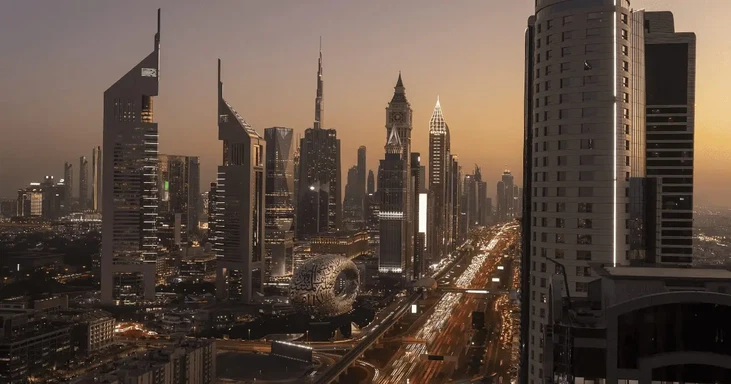
Dubai Economy Grows 4.7% in Q2 2025 – What Happened, Why It Matters, and What’s Next
Published :
Last Updated :

Published :
Last Updated :
The unprecedented upward momentum of Dubai’s economy in the second quarter of 2025 alone has reinforced its position on a global level. With a GDP ascending by 4.7% on a yearly basis, the country generated AED 122 billion.
This quarterly jump is greater than the emirate’s 4.4% surge, reported in the first half of 2025. These exceptional figures reaffirm the city’s resilience, with finance, tourism, trade, and real estate its major drivers.
The growth is appreciated not only for its key numbers but also for the strategic composition that produced these results. From robust rebounds in service sectors and a healthier financial sector to vigorous construction and real estate activity, this guide comprehensively breaks down the sectoral drivers.
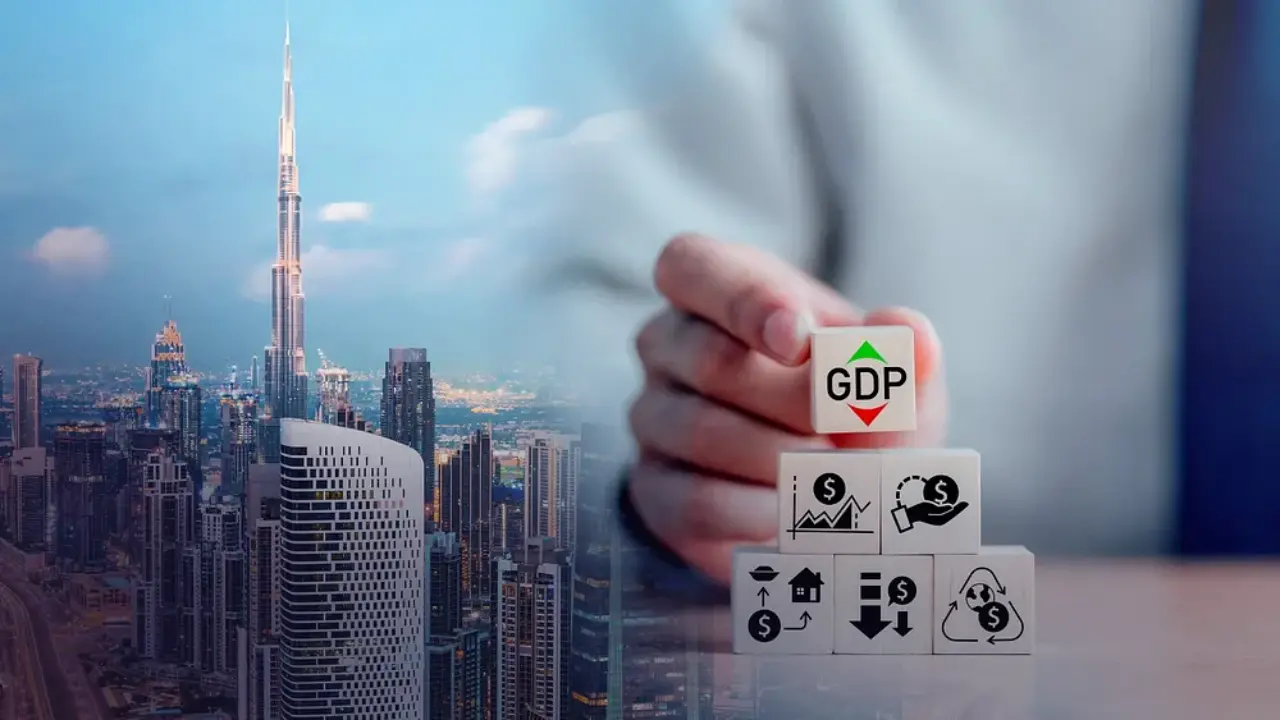
According to quarterly reports, Dubai’s GDP accounted for AED 122 billion in the second quarter of 2025. This marked a phenomenal 4.7% upsurge compared to the same quarter of 2024. More specifically, the year’s first half also demonstrated headline numbers highlighting a 4.4% rise in the emirate’s GDP. The values climbed to AED 241 billion, indicating how strongly momentum accelerated as the year progressed.
The quarterly reports also surpassed projections as well as the pace observed in Q1 2025, which marked a 4% YoY rise. In the same period, the emirates reported AED 119.7 billion.
The Q1 2025 GDP drivers featured 26.2% contributions from the healthcare sector, a 7.8% rise in the real estate sector, a 5.9% rise in finance, and a 4.5% rise in wholesale & retail trade. When looking for Q2 2025 Dubai GDP reports, the following sectors are found integral in accelerating its economy, including:
Tourism continued to support Dubai’s economy in Q2 2025. The robust air passenger flows, accounting for 22.5 million individuals in the quarter alone, have fueled retail and service revenues. This ultimately leads to elevated occupancy at hotels. Moreover, escalated movement in key tourist hubs, in turn, fosters short-term rentals, leisure, dining, and increased consumption.
Dubai significantly serves as a re-export and transshipment hub, which supports merchandise trade figures in GDP. The Emirates acts as a crucial logistics nexus for moving goods between Africa, Asia, and Europe and thereby generates increased trade volumes.
Strong construction activities remain key drivers in uplifting the emirate’s GDP. The sector is further strengthened by the mix of private developments and infrastructure projects. Furthermore, the sales and off-plan trends in real estate integrally add to economic output and report higher utilization of contractor services and building materials. According to the Government of Dubai, the construction sector demonstrated an 8.5% rise, whereas the real estate segment reported a 7% contribution in Q2 2025 Dubai GDP.
Financial services and banking regained traction via higher loan demand, escalated corporate activity, and fee income. In the second quarter of 2025 alone, the sector accounted for AED 14.2 billion, making a 7.7% rise on a yearly basis.
The outsize expansion of social work activities and health services makes the sub-sector the fastest-growing in Q2 2025. A 12.8% rise has been witnessed, with values reaching AED 1.4 billion. This reflects higher domestic demand and continuous rolling out of projects in specialized services, medical clinics, and human care.
| Sector | GDP Rise (Q2 2025) | AED (Q2 2025) |
|---|---|---|
| Construction | 8.5% | 16 billion |
| Real Estate | 7% | 19.8 billion |
| Health | 20% | 3.3 billion |
| Financial | 6.7% | 30.2 billion |
| Accommodation & Food Services | 4.9% | 8.7 billion |
| Information & Communication | 5.3% | 5.3 billion |
Dubai’s GDP growth in Q2 2025 wasn’t unforeseen but is orchestrated by structural enablers and efficient policy continuity. The emirates have been seamlessly investing in infrastructure and transportation, followed by free-zone growth and cutting-edge benefits for fintech.
What further stimulates the process is an investor-friendly ownership and residency reforms, as well as simplified business licensing programs. These policy formations keep the emirate attractive, while trade-facilitation measures are taken to cut logistics lead times.
Moreover, the city also emphasizes streamlining payment cycles for contractors. It also facilitates the expansion of digital government tools for reduced friction between active participants. These well-arranged mechanisms, paired with the active services of Dubai to become a regional business hub, have converted international demand into measurable GDP gains.
Note: Due diligence remains essential as micro-market dynamics differ, which might cause imbalance risk across some real estate or hospitality segments.
While Dubai's GDP is outpacing all projections and potential risks, several risks might temper momentum
According to several analysts, Dubai’s GDP is likely to surpass current figures and maintain a positive near-term ecosystem.
Consider the following pragmatic steps to convert businesses in Dubai into durable gains:

Dubai’s 4.7% GDP increase in the second quarter of 2025 strongly reflects how the emirate’s diversification strategy is generating tangible outcomes. From services, finance, and trade to construction, real estate, and health, various segments combined to accelerate output.
Beyond marking a celebratory moment, these figures underscore the city’s ability to transform private investments and policy reforms into economic accelerators. However, no market continues its path without risks, and to prevent this, involved institutions must balance thoughtful risk management with optimism.

Your gateway to offline planning in the digital realm. Discover a world of real estate opportunities through our immersive offline property website experience
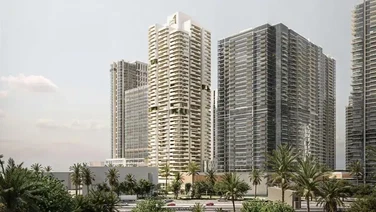
Apartments
Penthouses
Duplexes
AED 4,400,000
Al Wasl
2, 3, 4 & 5
1946 - 8253 Sq Ft
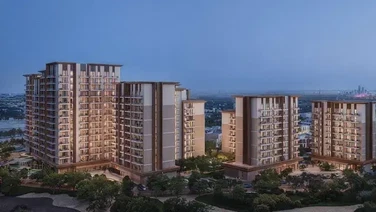
Apartments
AED 1,594,000
Expo City Dubai
1, 2 & 3
889 - 2403 Sq Ft
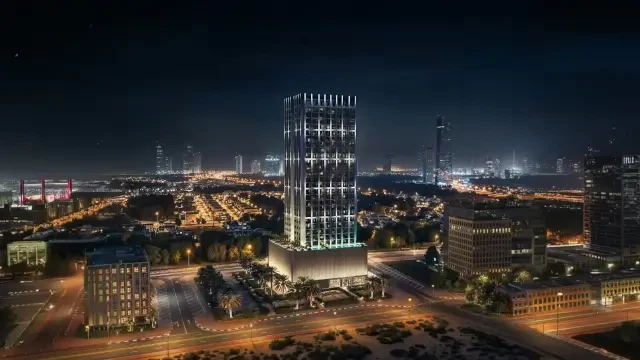
Apartments
Studios
AED 764,999
Jumeirah Village Circle
Studio, 1 & 2
341 - 1827 Sq Ft
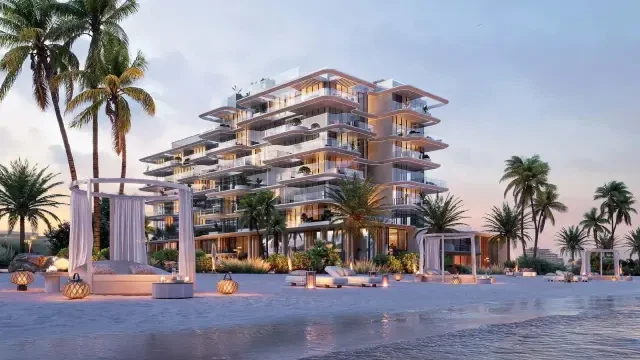
Apartments
Penthouses
Townhouses
AED 2,500,000
Dubai Islands
1, 2 & 3
898 - 3312 Sq Ft
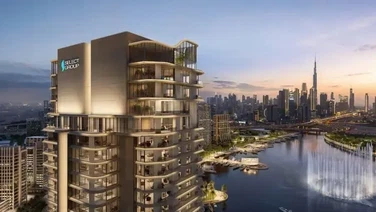
Apartments
Penthouses
Duplexes
AED Coming soon
Dubai Design District
1, 2, 3 & 4
738 - 7767 Sq Ft
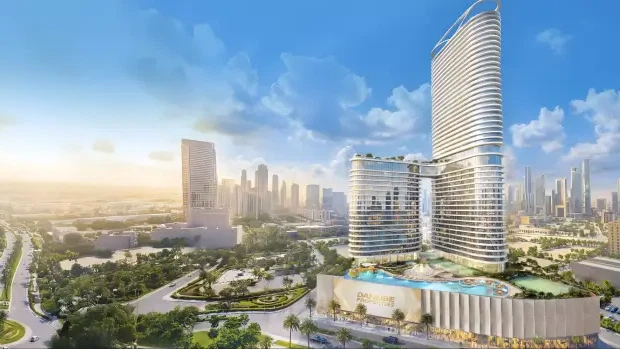
Apartments
AED 840,000
Jumeirah Village Circle
Studio, 1, 2 & 3
381 - 1326 Sq Ft

Apartments
Penthouses
Duplexes
AED 4,400,000
Al Wasl
2, 3, 4 & 5
1946 - 8253 Sq Ft

Apartments
AED 1,594,000
Expo City Dubai
1, 2 & 3
889 - 2403 Sq Ft

Apartments
Studios
AED 764,999
Jumeirah Village Circle
Studio, 1 & 2
341 - 1827 Sq Ft

Apartments
Penthouses
Townhouses
AED 2,500,000
Dubai Islands
1, 2 & 3
898 - 3312 Sq Ft

Apartments
Penthouses
Duplexes
AED Coming soon
Dubai Design District
1, 2, 3 & 4
738 - 7767 Sq Ft

Apartments
AED 840,000
Jumeirah Village Circle
Studio, 1, 2 & 3
381 - 1326 Sq Ft

Commercial
AED Coming soon
Damac Lagoons
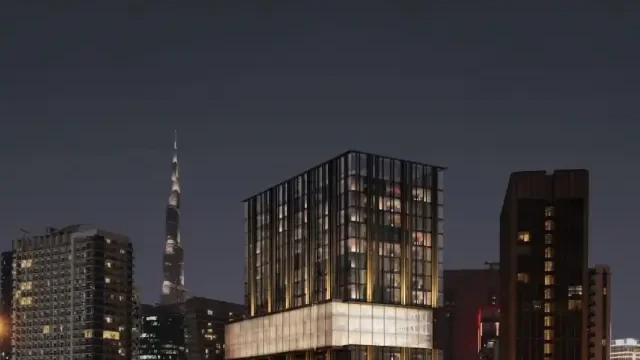
Commercial
AED Coming soon
Business Bay

Commercial
AED Coming soon
Business Bay

Apartments
Commercial
Penthouses
AED 2,000,000
Meydan
1, 2 & 3
640 - 4244

Apartments
Commercial
AED 1,900,000
Sheikh Zayed Road
1, 2 & 3
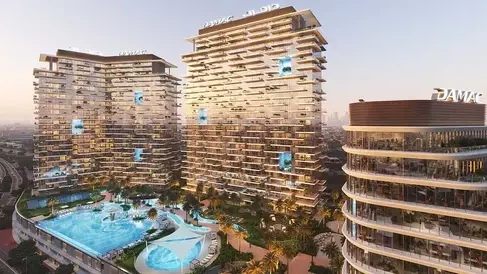
Apartments
Commercial
AED 1,142,000
Damac hills
1 & 2
740 - 6588 Sq Ft

Apartments
Penthouses
Duplexes
AED 4,400,000
Al Wasl
2, 3, 4 & 5
1946 - 8253 Sq Ft

Apartments
Penthouses
Duplexes
AED Coming soon
Dubai Design District
1, 2, 3 & 4
738 - 7767 Sq Ft

Apartments
Penthouses
Duplexes
AED 3,600,000
Downtown Dubai
1, 2, 3, 4, 5 & 6
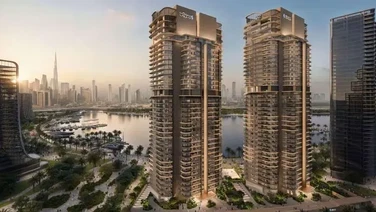
Apartments
Penthouses
Duplexes
AED 2,300,000
Dubai Design District
1, 2, 3 & 4
741 - 1988 Sq Ft

Apartments
Duplexes
AED 1,069,888
Town Square Dubai
1, 2 & 3
609 - 1808 Sq Ft
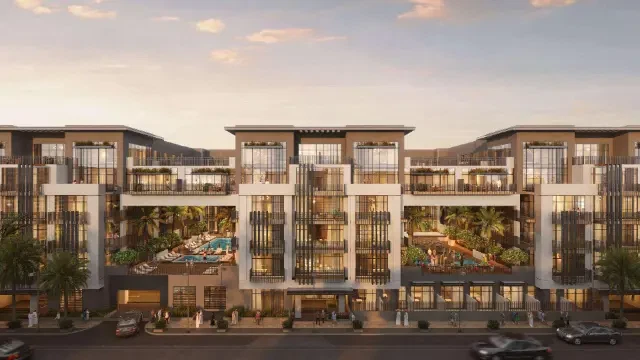
Apartments
Duplexes
Studios
AED 800,000
Jumeirah Village Circle
Studio, 1, 2 & 3
496 - 2,888 Sq Ft
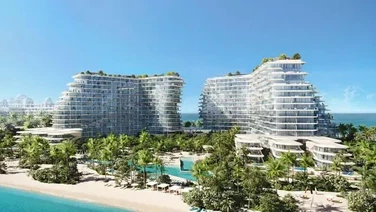
Apartments
Penthouses
Mansions
AED Coming soon
Palm Jumeirah
2, 3, 4, 5 & 6
1541 - 12382 Sq Ft
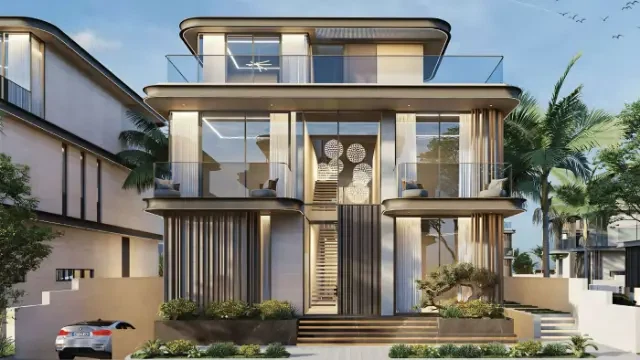
Villas
Mansions
AED 20,000,000
Mohammed bin Rashid City
5 & 6
13,007 - 13,568 Sq Ft
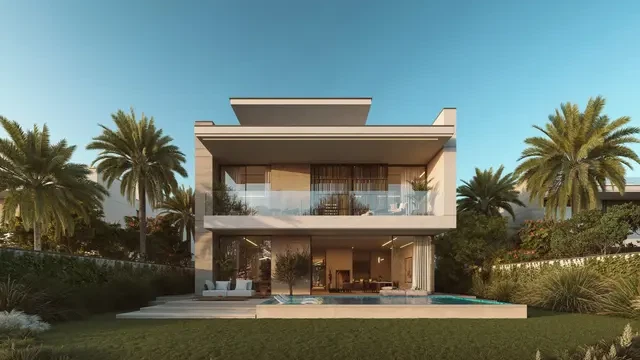
Villas
Mansions
AED 11,800,000
Jumeirah Golf Estates
4, 5 & 6
6069 - 10762 Sq Ft
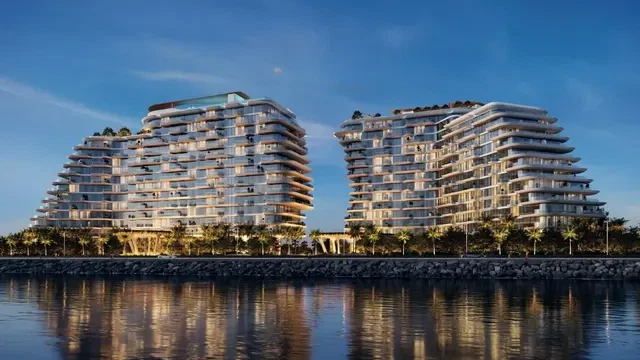
Apartments
Penthouses
Mansions
AED 5,500,000
Palm Jumeirah
1, 2, 3, 4, 5 & 6
940 - 11830 Sq Ft

Mansions
AED 65,000,000
Jumeirah
7
41550 - 49062 Sq Ft

Mansions
AED Coming soon
Tilal Al Ghaf
6 & 7

Apartments
Penthouses
Duplexes
AED 4,400,000
Al Wasl
2, 3, 4 & 5
1946 - 8253 Sq Ft

Apartments
Penthouses
Townhouses
AED 2,500,000
Dubai Islands
1, 2 & 3
898 - 3312 Sq Ft

Apartments
Penthouses
Duplexes
AED Coming soon
Dubai Design District
1, 2, 3 & 4
738 - 7767 Sq Ft

Apartments
Penthouses
Mansions
AED Coming soon
Palm Jumeirah
2, 3, 4, 5 & 6
1541 - 12382 Sq Ft

Apartments
Penthouses
Duplexes
AED 3,600,000
Downtown Dubai
1, 2, 3, 4, 5 & 6

Apartments
Penthouses
Duplexes
AED 2,300,000
Dubai Design District
1, 2, 3 & 4
741 - 1988 Sq Ft

Apartments
Studios
AED 764,999
Jumeirah Village Circle
Studio, 1 & 2
341 - 1827 Sq Ft
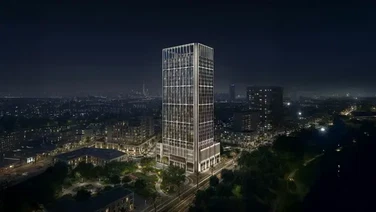
Apartments
Studios
AED 766,999
Jumeirah Village Triangle
Studio, 1 & 2
336 - 1859 Sq Ft

Apartments
Studios
AED Coming soon
Damac Lagoons
Studio, 1 & 2
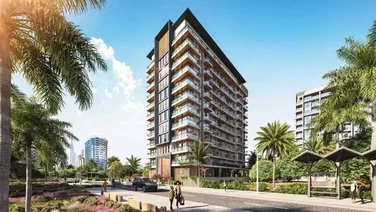
Apartments
Studios
AED 580,000
Dubai Land Residence Complex
Studio, 1 & 2
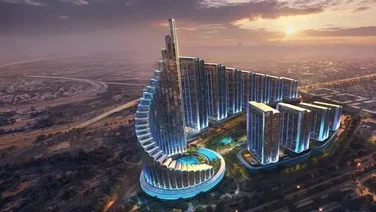
Apartments
Studios
AED 1,600,000
Meydan
Studio, 1, 2 & 3
370 - 1568 Sq Ft
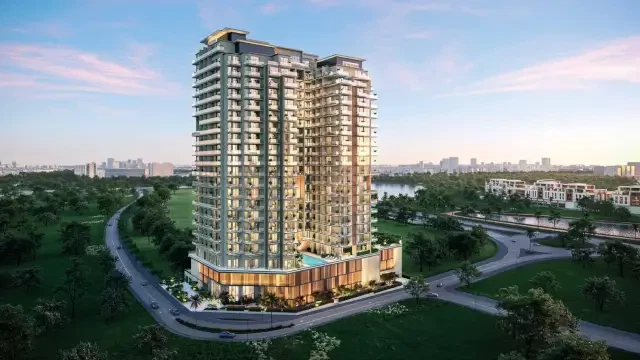
Apartments
Studios
AED 650,000
Dubai Production City
Studio, 1, 2 & 3
404 - 2092 Sq Ft

Apartments
Penthouses
Townhouses
AED 2,500,000
Dubai Islands
1, 2 & 3
898 - 3312 Sq Ft

Villas
Townhouses
AED Coming soon
Dubailand

Villas
Townhouses
AED 6,150,000
Nad Al Sheba
3, 4 & 5
3252 - 5650 Sq Ft
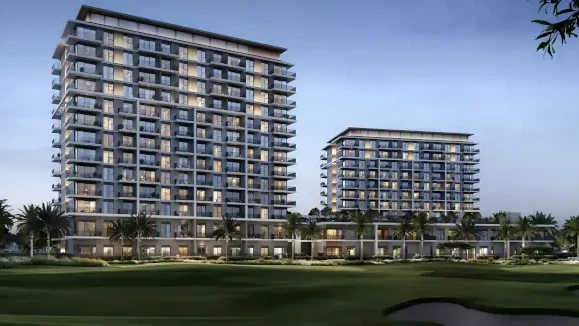
Apartments
Townhouses
AED 1,270,000
Emaar South
1, 2 & 3
788 - 2728 Sq Ft
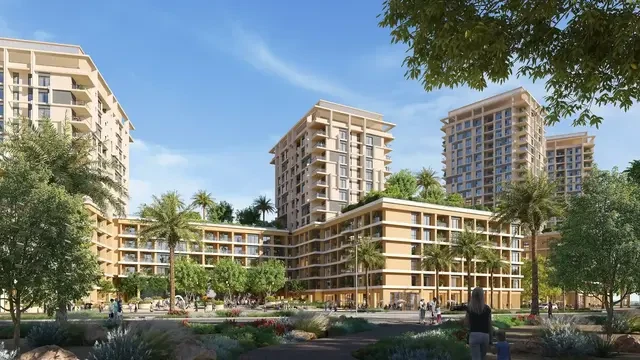
Apartments
Studios
Penthouses
Townhouses
Duplexes
AED 900,000
Wasl Gate
Studio, 1, 2, 3 & 4
523 - 1982 Sq Ft

Villas
Townhouses
AED Coming soon
Dubai Investments Park
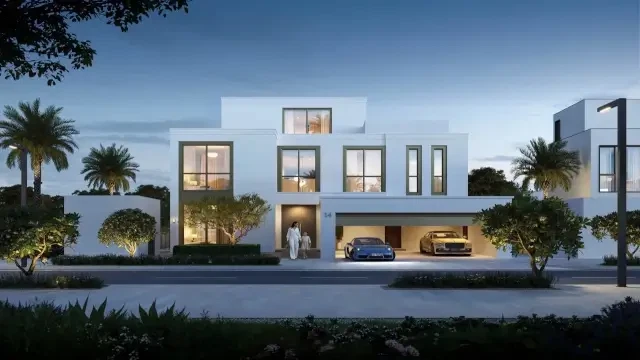
Villas
AED 16,550,000
The Oasis
4, 5 & 6
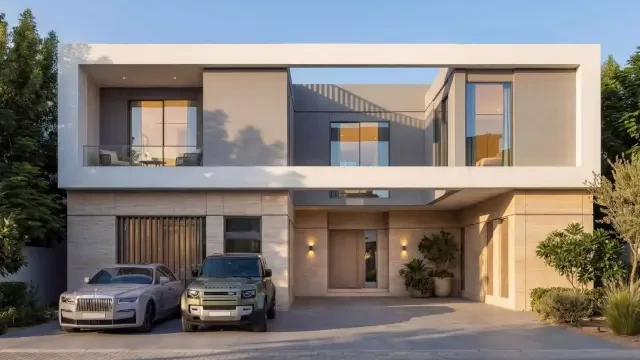
Villas
AED Coming soon
Sobha Sanctuary
4, 5 & 6
4905 - 7191 Sq Ft
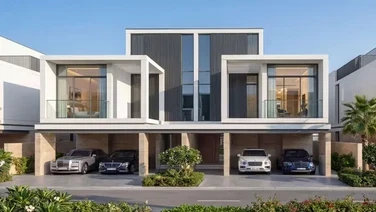
Villas
AED Coming soon
Sobha Sanctuary
4 & 5
2520 - 4154 Sq Ft
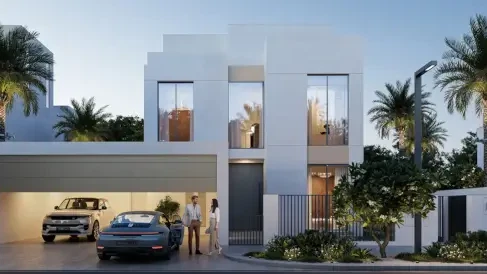
Villas
AED Coming soon
The Heights Country Club & Wellness
3, 4 & 5

Villas
AED Coming soon
Nad Al Sheba
3, 4, 5 & 6

Villas
Townhouses
AED Coming soon
Dubailand
Subscribe to our Daily, Weekly and Monthly Newsletters, Expert Advice and Latest Launch with Zero Spam, Unsubscribe Anytime.